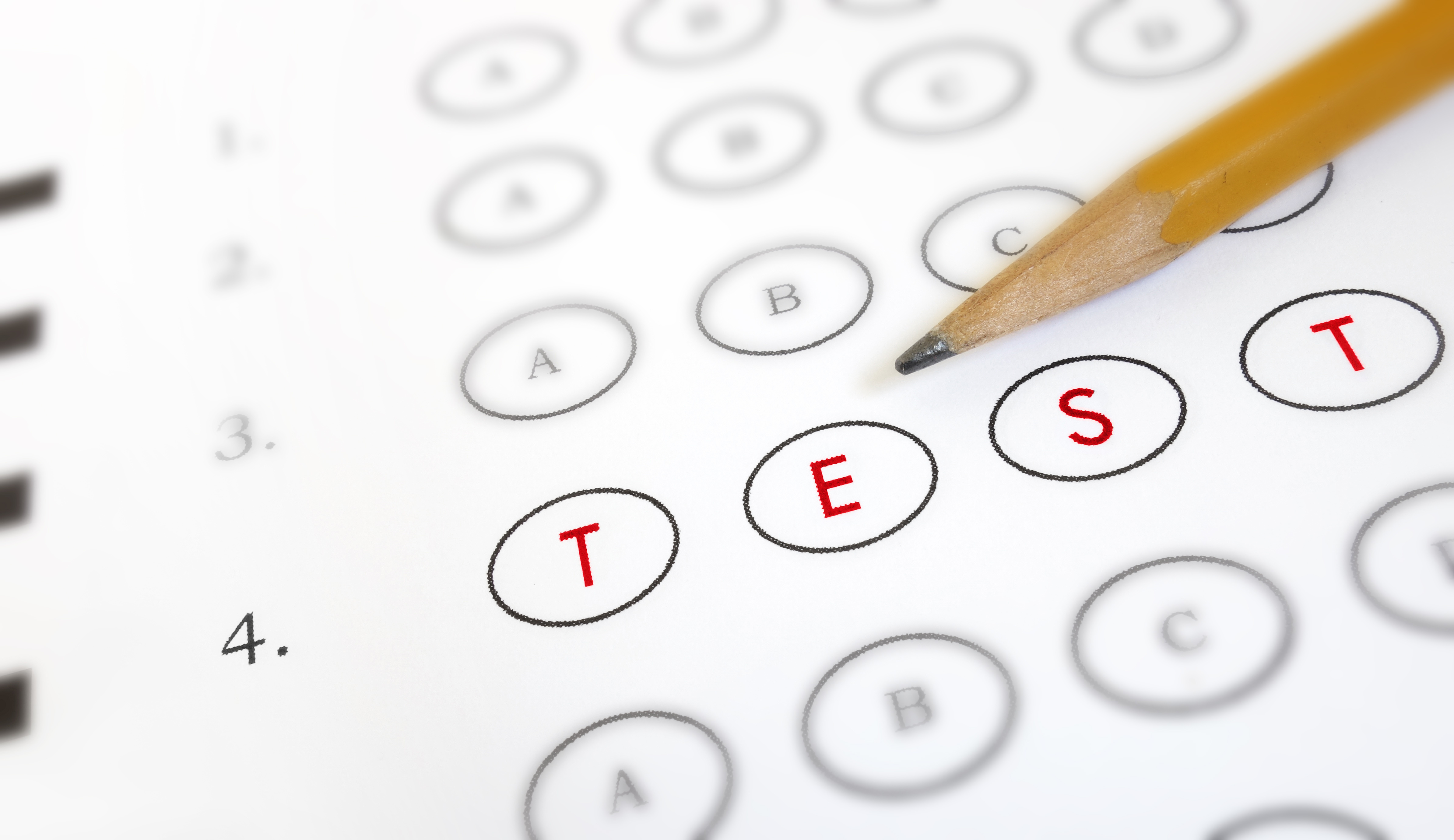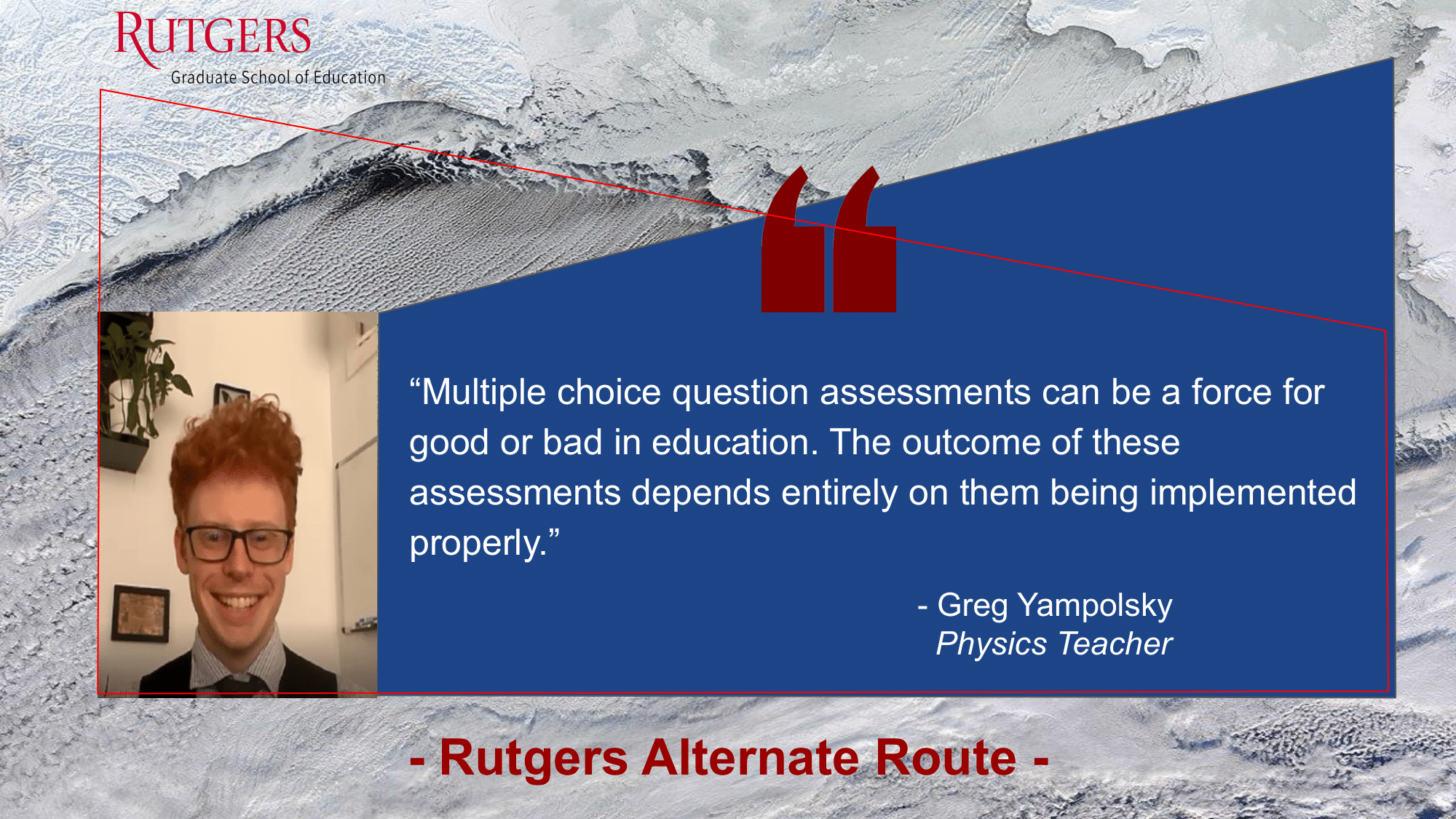Should Teachers Use Multiple Choice Tests for Assessment?

“Assessment is an integral part of instruction, as it determines whether or not the goals of education are being met. Assessment affects decisions about grades, placement, advancement, instructional needs, curriculum, and, in some cases, funding” (Edutopia). However, assessing these aspects can be awfully challenging. A growing staple of modern testing has become MCQs (multiple choice questions). Are multiple choice questions effective at demonstrating learning, or are they a negative result of our prolific standardized testing culture? Is there a way to implement MCQs in a more effective way? Over the past several days I have looked over the leading research in designing MCQ assessments. We will now take a dive into MCQs: the good, the bad, and the ugly.
The History of Multiple-Choice Assessments
Let’s explore the origin of MCQs in World War I and the troubling past of MCQs and their impact on education.
The history of multiple-choice assessments is a troubling one at that.
Multiple-choice tests had their origin in World War I, when Dr. Robert Yerkes, President of the American Psychological Association (APA), convinced the Army to commission them to test the intelligence of recruits. (Ramirez)The goal of these tests was to measure the innate ability of the recruits and not learned skills. The reason they wanted it to be multiple choice was because they needed an efficient way to measure millions of people without having to give written or oral exams. They administered these tests to 1.7 million recruits. The army immediately accepted the results of these tests without much thought.
Their results were as follows:
“The average citizen, represented by the average soldier, was rather dull, and in the aggregate blacks and immigrants were inferior to native-born Americans of western stock”(Kuklick).
Right off the bat, I think we can immediately see some worrisome and biased results. First, the ridiculous notion that an MCQ could effectively measure innate ability, and then using that line of thinking to justify racism and to create a biased social pecking order among children in the school systems.
This test was then used by the APA to persuade Congress to pass the immigration act of 1924, which excluded many ethnic groups on the ludicrous idea that they were genetically inferior as opposed to seeing the bigger picture and acknowledging socioeconomic, cultural, and historical factors. Ironically, the army actually had deemed the results of the test to have no value. However, that part was left out by Yerkes when he not only sold the idea to Congress but then later to schools across the country. Soon, the craze for bubbling in scantrons swept the nation. We became a country where student’s lives were measured by a list of narrowed responses.

The Benefits of MCQs
Yes, there are benefits to multiple-choice questions, including efficiency in grading and feedback, lack of bias and subjectivity, and versatility in assessing various levels of learning outcomes.
Despite the murky past of MCQs there are many benefits. With an ever-increasing population and with the advancements in technology, MCQs are, in fact, a very efficient form of grading. Why grade 100 open-ended responses every time content knowledge needs to be assessed, when a computer can, not only grade the test, but also offer feedback, all within nanoseconds of the student having taken the test. This can free up educators to focus on more pressing matters, like how to better structure their lessons, or make calls home to students with behavioral problems. Multiple choice tests also have the benefit of not being as subjective as an open-ended response with a rubric. It is no secret that teachers will be implicitly biased towards their favorite students. With an MCQ assessment, one needn’t worry about such things. The lack of bias and efficiency of administration and scoring of MCQ is exactly why they are so popular among standardized tests.
The Limitations of MCQs
Arguments against multiple-choice assessments include the promotion of memorization and factual recall or limited performance feedback and reinforcement of wrong answers. In addition, many argue that such assessments measure test-taking ability rather than understanding of the topic.
On the flip side, there are important limitations that all MCQ enthusiasts must be aware of. Firstly, many researchers discourage the use of MCQs, arguing that they promote memorization and factual recall and do not encourage (or test for) high-level cognitive processes (Airasian,1994; Scouller, 1998). Also, the feedback provided is minimal, because it can only give feedback on what the right and wrong answer was and not on the underlying misconception. One of the biggest problems with MCQ is that they can often test students’ test-taking ability rather than their understanding of the topic.
For example, let’s say that the question went as follows:
Question: What is 5x7-2?
A. George Washington
B. Banana
C. 33
D. horse
Many students can reason out the answer is 33 without actually having to know the content. Instead, it is easy to deduce by using the process of elimination. Don't get me wrong, the process of elimination is a good skill to have, but it is not the standard that the question is trying to test.
Here is another example:
Question: When a simple pendulum is at its maximum angular
displacement, which of the following is true?
E. Potential energy is maximum, kinetic energy is minimum
F. Potential energy is maximum, kinetic energy is maximum
G. Potential energy is minimum, kinetic energy is minimum
Without understanding physics many can guess that the correct answer is E. This can be done by assuming that when the test maker writes the question, they start by making the correct answer. They then add wrong answers that are deviations from the correct ones. Notice answer F kept the first part but changed the second from E, and that answer G changed the second but kept the first.
Lastly, MCQ can often reinforce wrong answers. When a student answers an MCQ they often will remember their answer as being the correct one. The reason for this is the unfortunate truth that most students do not look over their feedback thoroughly. Many students just focus on the score, and not the why of the score. As we can see there are many limiting factors with MCQ. Despite all that I have said, do not be totally discouraged from MCQ, my fellow educators.
Using MCQs Effectively
Finally, here are some principles for effective MCQ assessments along with examples of effective use of MCQs, such as self-assessment and test review.
Many researchers believe that MCQ can actually be very effective, so long as they are aware of their limitations and are used properly. According to Dr. Nicol, there are seven principles to using MCQ effectively. They are as follows: Clarifying goals, criteria, and standards; Self-assessment and reflection; Delivers high-quality feedback; Encourages dialogue around learning; Feedback and motivation; Closing the gap; Feedback shaping teaching (Nicol).
As long as the MCQ assessment adheres to these principles, and minimizes the limiting factors, an MCQ can be turned into a powerful and effective tool in your pedagogy arsenal. Here is how I have completely turned around how I use MCQs. For starters, MCQs are not just effective at graded assessments but also as a form of self-assessment, according to principle 2. What I have begun to use is Google Forms for students to do a test review prior to giving them the test. The Google form is programmed to provide automatic, detailed, and specific feedback (principle 3). It also motivates students to take these because their scores will go up (principles 5). I also set up the Google form to be retaken multiple times. The students are told to retake the practice test until they get 100 percent on it without guessing. This prevents the problem of reinforcing wrong answers and will instead eventually reinforce the correct response. When I administer a MCQ assessment the students will answer based on their knowledge of the practice test. This new practice has made my student’s marks in my classes go up very drastically.
MCQ assessments can be a force for good or bad in education. The outcome of these assessments depends entirely on them being implemented properly. While they have benefits such as efficiency and lack of bias, they also have limitations such as promoting memorization and reinforcing wrong answers. However, by using MCQs effectively, such as adhering to principles for effective assessments and using them for self-assessment and test review, they can be a powerful and effective tool in education.

If you’re considering following your dream of teaching, Rutgers Alternate Route can offer you the support and training you need to succeed. Be sure to follow Rutgers Alternate Route on Twitter and sign up for Alternate Route’s monthly newsletter for more information and stories from the field of education.

 Greg Yampolsky teaches Physics at American History High School in New Jersey. A Physics major in college, Greg used his knowledge of science to pursue a career in teaching through the Rutgers Alternate Route. The College of New Jersey graduate is driven by a passion for sharing his love for science, connecting with students, and imparting life-enhancing lessons.
Greg Yampolsky teaches Physics at American History High School in New Jersey. A Physics major in college, Greg used his knowledge of science to pursue a career in teaching through the Rutgers Alternate Route. The College of New Jersey graduate is driven by a passion for sharing his love for science, connecting with students, and imparting life-enhancing lessons.





